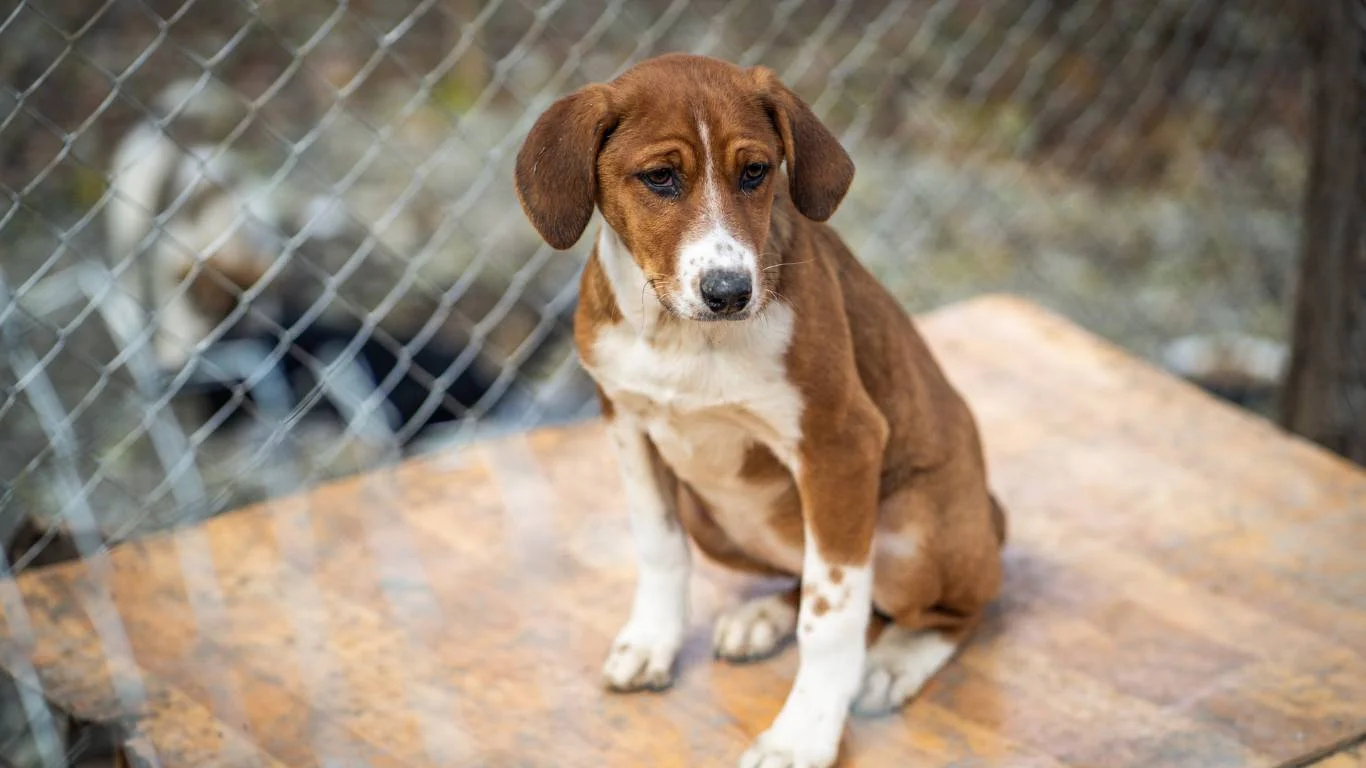What to Do If Your Dog Has a Cough That Won’t Go Away: Vet Tips
If your dog has been coughing for a while, and it just won’t go away, it can be a pretty alarming experience for any pet parent. As someone who’s worked as a Veterinary Assistant with a special focus on nutrition, I’ve seen my fair share of pets who come in with persistent coughs. It’s always a bit tricky because coughing can be linked to so many different health issues, some more serious than others. So, what do you do if your dog has a cough that won’t go away? Well, let’s break it down, step by step, and go over some things to keep in mind as you help your furry friend through this uncomfortable situation.
What Causes a Persistent Cough in Dogs?

First, let’s talk about the potential causes behind your dog’s persistent cough. The cause of a cough can vary based on a number of factors like age, breed, and overall health. In my experience, one of the first things I recommend to pet owners is to try to get a good understanding of whether the cough seems dry or productive (meaning it’s producing mucus). A dry cough is often a sign of irritation in the airways, while a productive cough could be associated with infections or other issues like pneumonia.
Common Causes of a Cough That Won’t Go Away
- Canine Cough (Kennel Cough): This is a viral infection that’s highly contagious, especially among dogs in crowded settings like boarding facilities. It can cause a dry, honking cough that often won’t go away until it’s treated.
- Heart Disease: Dogs, especially older ones or certain breeds, can develop heart disease that leads to fluid buildup in the lungs. This can result in coughing, and sometimes the cough is worse at night or after exercise.
- Pneumonia: An infection in the lungs can result in coughing, and it’s more likely to occur if your dog has had a recent respiratory illness or if they’ve been exposed to something that might compromise their immune system.
- Allergies: Just like us, dogs can suffer from allergies. Environmental factors like dust, pollen, or even certain foods can trigger a persistent cough.
- Collapsed Trachea: This is a common issue in small-breed dogs. It occurs when the cartilage rings in the trachea weaken and cause the trachea to collapse, which can trigger a cough.
When to Call the Vet

Now, you may be thinking: “How do I know when it’s time to make that vet appointment?” Honestly, if your dog’s cough has lasted more than a few days, it’s probably a good idea to consult with a vet. If you’re noticing any of the following symptoms, it’s important to act quickly:
- Persistent Coughing: If the cough has been going on for more than a week, it’s time to get professional help.
- Lethargy: If your dog seems unusually tired or is not acting like their usual self, this could indicate something more serious.
- Loss of Appetite: Dogs who are sick often lose their appetite. If your dog isn’t eating, it’s definitely worth a trip to the vet.
- Difficulty Breathing: This is a major red flag. If your dog is struggling to breathe, get them to the vet immediately.
- Coughing Up Blood: If your dog is coughing up anything that resembles blood or has blood in their mucus, this is a medical emergency.
How to Help a Dog with a Persistent Cough at Home

If your vet is not yet involved, or you’re waiting for an appointment, there are a few things you can do to make your dog feel more comfortable while their body works to get better. These are just temporary measures to help manage symptoms, but they’re important nonetheless. When your dog has a cough that won’t go away, it’s important to keep them hydrated and make sure they are as comfortable as possible.
Keeping Your Dog Comfortable
- Humidifier: Consider using a humidifier to add moisture to the air. This can help with any dry, irritated throats that may be contributing to the cough.
- Warm, Soothing Food: If your dog’s appetite has decreased, try offering them something warm and easy on the stomach, like chicken broth (without onions or garlic) or wet dog food.
- Rest: Just like us, dogs need rest when they’re sick. Try to keep their environment calm and low-stress.
Treatment Options for a Persistent Cough in Dogs

Once you’ve ruled out the potential causes and decided it’s time for treatment, the next step is finding the best way to manage your dog’s persistent cough. In some cases, the solution might be simple, like an over-the-counter medication or a change in lifestyle. But in more severe cases, it might require prescription medications or even more intensive care. Let’s dive into the most common treatment options that veterinarians may recommend.
Medications for Respiratory Infections and Inflammation
If your dog’s persistent cough is the result of an infection, such as kennel cough or pneumonia, the vet may prescribe antibiotics or antiviral medications to help fight the infection. Keep in mind that bacterial infections are treated with antibiotics, while viral infections may require antiviral treatments or simply time for the body to recover. In some cases, your vet may also recommend a cough suppressant to ease the discomfort, especially if the coughing is causing your dog significant stress or exhaustion.
From my experience, it’s important to follow the dosage instructions to the letter. If the medication is for a cough suppressant or other symptom-relieving treatment, you’ll want to ensure that your dog is monitored for any side effects. Always keep the vet in the loop if your dog’s condition changes or if there are any new concerns.
Managing Chronic Coughing Due to Heart Disease
If your dog’s persistent cough is linked to heart disease, such as congestive heart failure, the treatment plan might be a little different. In such cases, the goal is not just to treat the cough but to manage the underlying condition. Your vet might recommend medications that help relieve fluid buildup around the heart and lungs, like diuretics, ACE inhibitors, or beta-blockers.
As I’ve seen with several clients, managing heart disease in dogs can be a bit of a long-term commitment. You might need to adjust your dog’s diet (especially if they have a reduced appetite) or manage other health conditions that could be contributing. One thing I always tell pet owners is to stay consistent with medications and regular vet check-ups. These are key for maintaining your dog’s quality of life and ensuring that the cough doesn’t return or worsen.
Preventing Coughing in Dogs: Keeping Your Dog’s Health in Check

Prevention is always better than treatment, right? While some causes of persistent coughing are inevitable, there are certainly ways to help minimize the chances of your dog experiencing respiratory issues or a recurring cough. Here are some of the most effective ways to promote long-term respiratory health for your dog:
Vaccinations and Preventative Care
One of the best ways to prevent illnesses that lead to coughing is by keeping your dog up-to-date on their vaccinations. For example, kennel cough (bordetella) is preventable with a vaccine, and if you take your dog to a dog park or boarding facility often, this is an important step in reducing their risk. My personal experience with many pet owners shows that getting these vaccines can save a lot of stress and vet visits later on!
In addition to vaccines, I recommend that you schedule regular health check-ups with your vet. These check-ups are essential for early detection of potential health problems. If you catch things like heart disease or respiratory infections early, you can start treatment before the condition becomes severe.
Protecting Your Dog from Environmental Irritants
Sometimes, environmental factors are the primary culprits behind a dog’s persistent cough. Things like smoke, dust, or even certain cleaning products can irritate your dog’s lungs and airways, especially if they have sensitive respiratory systems. Keeping your home clean, well-ventilated, and free of smoke can help prevent these irritants from triggering a cough. If your dog suffers from seasonal allergies, managing their exposure to allergens is just as important as it would be for us humans.
In my experience, I’ve seen a lot of dogs improve significantly once their environment was cleaned up. I always recommend that pet parents regularly bathe their pets and keep bedding and common areas free from dust and pet dander. If you live in an area with high pollen counts, consider keeping your dog inside during the peak times of day, and wipe their paws and coat when they come in from outdoors.
When Home Remedies Help… And When They Don’t

Home remedies can sometimes help ease your dog’s discomfort, but it’s important to understand that these should never replace professional medical treatment. If your dog’s cough persists or seems to worsen, always reach out to your vet. But if you’re just looking for some ways to make your dog more comfortable while you wait for that vet appointment, here are some simple at-home treatments that might provide some relief:
Soothing Moisture
One of the most common remedies for a dry, persistent cough is a little extra moisture in the air. Using a humidifier in the room where your dog spends most of their time can really help. Not only does it soothe an irritated throat, but it can also help clear out congestion in their lungs if they’re suffering from a respiratory infection.
Honey and Warm Water
If your dog isn’t too sensitive to sweet foods, you can try offering them a little bit of honey. Honey has natural soothing properties that can ease throat irritation. I always recommend mixing it with some warm (not hot!) water and serving it in small amounts. However, it’s essential to remember that honey should only be used for mild cases, and never as a substitute for actual veterinary care if the cough persists.
Understanding the Impact of Age and Breed on Persistent Coughing

As we dive deeper into the topic, it’s important to recognize how a dog’s age and breed can play a major role in whether or not they develop a persistent cough. Certain breeds are more prone to respiratory issues, and older dogs are often at higher risk for developing conditions like heart disease or collapsed trachea, both of which can contribute to long-lasting coughing.
Breed-Specific Considerations
Some dog breeds are more predisposed to respiratory issues. Small breeds, for example, are at greater risk for conditions like collapsed trachea, which can cause a persistent, harsh cough. Breeds like the Chihuahua, Pomeranian, and Yorkie are common victims of this condition. On the other hand, larger breeds like Bulldogs, Boxers, and Dobermans can be more susceptible to heart disease, which can also manifest as coughing.
It’s always helpful to know your dog’s breed-specific risks when it comes to health issues. For instance, my experience working with owners of these breeds has shown that early intervention can make all the difference. The earlier you spot symptoms and consult a vet, the better the outcome tends to be. If you have a breed that’s known for certain respiratory conditions, being proactive with regular vet check-ups and health monitoring is key.
Age-Related Coughing Issues
Older dogs are especially vulnerable to chronic coughs. Age-related conditions like chronic bronchitis, pneumonia, or even the onset of cancer can contribute to a persistent cough. As dogs age, their immune systems weaken, and their respiratory systems become more fragile, making them more susceptible to infections or conditions that cause prolonged coughing. If you have a senior dog, it’s especially important to monitor their health closely and keep an eye out for changes in their breathing or behavior.
When to Seek Specialist Care for Your Dog’s Cough
While most coughs can be diagnosed and treated by your regular vet, there are times when you might need to seek out a specialist. Veterinary cardiologists, pulmonologists, or internal medicine specialists are often the go-to professionals for more complicated cases that don’t respond to typical treatments. If your dog’s coughing is persistent and nothing seems to help, getting a second opinion from a specialist may be the best route.
From my personal experience, I’ve seen cases where a simple visit to a specialist led to a breakthrough diagnosis. Whether it’s an undetected heart issue or a rare respiratory infection, specialists have the tools and expertise to dive deeper into complex conditions. Don’t be afraid to ask your regular vet for a referral if you feel your dog’s condition requires more specialized attention.
Living with a Dog Who Has a Chronic Cough

If your dog has been diagnosed with a chronic condition that causes persistent coughing, managing their daily life becomes a part of the journey. While it’s certainly challenging, there are ways to ensure that they live comfortably and with quality of life, even if they have to deal with a lingering cough.
Adjusting Their Environment for Comfort
Keeping your dog’s environment stress-free and comfortable is one of the most important things you can do. A dog with a chronic cough may tire easily, so it’s vital to create a calm space where they can rest undisturbed. Soft bedding, a warm environment, and a quiet corner of the home where they can retreat are all beneficial.
Additionally, if your dog has heart disease or other respiratory issues, it’s helpful to reduce their exposure to environmental stressors. Limit activities that could exacerbate their condition, like strenuous exercise or exposure to extreme temperatures. Regular, gentle walks are fine, but be mindful of the duration and intensity based on your dog’s energy levels.
Maintaining Their Health Through Diet
A nutritious diet is crucial for dogs with chronic health conditions. Dogs with respiratory issues or heart disease may benefit from a specialized diet that supports their heart and lung health. Your vet might recommend a diet high in antioxidants, omega-3 fatty acids, and low in sodium to help manage symptoms and reduce inflammation.
During my time working with pet owners, I’ve seen firsthand how diet can play a major role in managing chronic conditions. I always suggest that pet parents look for dog food brands that cater to specific health needs or work with their vet to create a customized plan for their dog. A healthy, balanced diet can help boost the immune system and give your dog the best chance at living a long, comfortable life despite their condition.
References & Resources
For more detailed information on respiratory issues in dogs, I recommend checking out these trusted resources:
Disclaimer
It’s important to note that while this article provides general advice and insights based on my experience as a Veterinary Assistant, it should not be used as a substitute for professional veterinary advice. Always consult with your veterinarian to properly diagnose and treat your pet’s health concerns. If your dog is exhibiting signs of a persistent cough or any other concerning symptoms, seeking professional care is crucial to ensure their well-being.





